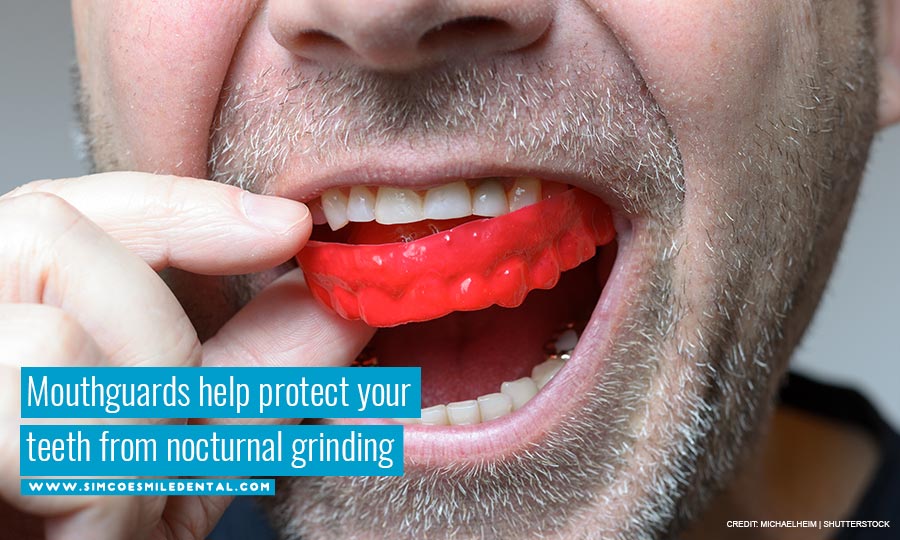If you no longer enjoy drinking hot or cold beverages just because they hurt your teeth, it may be time to pay your dentist a visit.
Tooth sensitivity is characterized by sharp or piercing pain going right down to the deep nerve endings of your tooth when you drink or bite into something hot, cold, or sour. This common dental condition can be triggered by various factors. When the tooth enamel becomes eroded, it can lead to the exposure of the dentin. Consuming hot, cold, and acidic foods and drinks can result in sensitivity in the tooth with exposed dentin.
What Causes Sensitive Teeth
The enamel is a strong outer layer that protects the crown of your tooth. On the other hand, the roots located underneath the gums do not have enamel but rather cementum to protect them. Both enamel and cementum protect the dentin of the teeth, which transmits sensation to your nerves and then brain.
Weakened or damaged enamel or exposed root of the tooth causes your dentin to become sensitive to hot, cold, acidic, and sticky foods and drinks, which trigger pain or discomfort.
Causes of sensitive teeth may include:
- Gum recession
- Gum disease (gingivitis or periodontitis)
- Tooth decay or plaque buildup
- Worn-down enamel
- Damaged or fractured teeth
- Damaged fillings
- Aggressive brushing
- Grinding your teeth
- Use of tooth-whitening products or acidic mouthwash
- Dental procedures (typically temporary and lasts between 4-6 weeks)
Relieve Tooth Sensitivity With These Home Remedies
Tooth sensitivity to hot and cold can make eating and drinking painful. Luckily, there are several helpful tips for sensitive tooth pain relief so you can enjoy your favourite foods and drinks again. We will explore some of the most common sensitive tooth natural remedies and solutions.
1.Use Toothpaste Designed for Sensitive Teeth
Sudden tooth sensitivity can be uncomfortable. However, brushing with toothpaste specifically produced to relieve painful symptoms caused by sensitive teeth can help. Its special ingredients work by temporarily filling tiny holes in your dentin and enamel to protect the sensitive nerves of your teeth from exposure, reducing pain and discomfort.
2.Use Soft-Bristled Toothbrush
One of the easiest solutions for sensitive tooth relief is using a soft-bristled toothbrush. Brushing your teeth with a stiff-bristled toothbrush can be hard on the enamel, causing more microscopic holes to develop and eventually increasing the sensitivity of your teeth. It can also aggravate gum recession, exposing the dentin and sensitive nerves even more. If your tooth feels sensitive, be sure to switch to a soft-bristled toothbrush and brush your teeth using gentle strokes to preserve its surface and maintain the integrity of your gums.
3.Rinse with Salt Water Solution
Making a salt and water mouthwash is probably the most cost-efficient solution to sensitive teeth. Rinsing with saltwater solution helps balance the pH level in your mouth by creating an alkaline environment that kills plaque-causing bacteria.
To make a saltwater rinse, simply mix 2 teaspoons of salt with 1 cup of warm water. Rinse your mouth in the morning and at night until sensitivity improves.
4.Oil Pulling
Swishing your mouth with liquified coconut oil (a process known as oil pulling) can provide relief from sensitive teeth caused by a potential bacterial overgrowth. Oil pulling practice has been used as an oral health solution for many years. Coconut oil helps stop the growth of bacteria in the mouth, disintegrates the formation of plaque, and gets rid of germs and toxins from the gum surface. It does not only promote healthier teeth and gums and reduce sensitivity but also helps whiten and brighten your teeth over time. Swish a tablespoon of melted coconut oil for about 20 seconds and spit it out. Rinse with warm water.
5.Wear Mouthguard at Night
Grinding your teeth at night (a condition called nocturnal bruxism) is one of the culprits of sensitive teeth. To protect your teeth against pressure and prevent further enamel erosion of the tooth crown, the dentist will take a mould of your teeth to create a custom-designed mouthguard that you can wear while you sleep.
6.Avoid Acidic Foods and Drinks
Consuming highly acidic foods and beverages can increase your risk of enamel erosion, which worsens the sensitivity of your teeth. Citrus fruits (oranges and berries) and beverages (soft drinks, fruit juices, and wine) can wear out your enamel and expose the dentin, roots, and nerves.
7.Use Clove and Clove Oil
Cloves and clove oil are among the most effective tooth sensitivity treatments due to their amazing properties that help minimize inflammation, bacterial overgrowth, and pain. Swishing its extract can provide you with a numbing effect that almost instantly alleviates tooth sensitivity. Additionally, mixing clove oil with orange essential oil helps enhance its analgesic properties. Since these essential oils are highly potent, simply mix them in small amounts with carrier oils , like avocado or coconut oil.
Dental Treatments for Sensitive Teeth
If you have sensitive teeth concerns, let your dentist know about it. They can identify or exclude the underlying causes of tooth sensitivity. Depending on the circumstances, the dentist may recommend any of the following dental solutions:
- Desensitizing Toothpaste
The dentist will prescribe you a desensitizing toothpaste to relieve sensitivity. Many desensitizing toothpaste products can be purchased over-the-counter. Several applications of desensitizing toothpaste help ease the pain associated with tooth sensitivity. - Fluoride
Rinsing with fluoride mouthwash or applying fluoride to the sensitive areas of the teeth helps strengthen the enamel and reduce pain and discomfort. In some cases, a prescription fluoride may also be recommended for at-home use, which is to be applied through a custom tray. - Dental Bonding
The dentist may recommend applying bonding resin to the exposed root surface to treat sensitivity. A local anesthetic may be required to control the pain during the application process. - Surgical Gum Graft
If the root is exposed due to lost gum tissue, the dentist may need to surgically remove a small amount of gum tissue from elsewhere in your mouth and attach it to the affected area to protect the exposed roots and minimize sensitivity. - Root Canal
If you suffer extreme pain due to tooth sensitivity and other treatments failed to provide relief, the dentist may recommend a root canal, a surgical procedure that treats various problems in the dental pulp. Unlike other types of dental treatment, a root canal procedure is considered the most effective technique for resolving tooth sensitivity issues.
If you are looking for the most trusted dental clinic in Oshawa to treat sensitive teeth problems, call Simcoe Smile Dental immediately at (289) 312-1482 to book an appointment. Our team of highly skilled and compassionate dentist takes pride in providing excellent dental services of the highest standards to patients of all ages.




